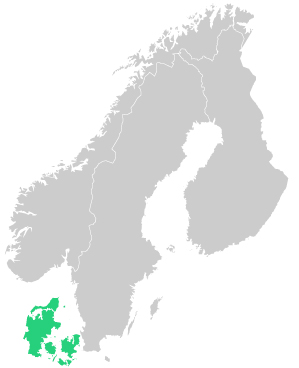New possibilities for reimbursement due to COVID-19
It is possible to apply for reimbursement from employees’ first day of illness if absence due to illness is caused by COVID-19. In the case of illness caused by something other than COVID-19, the general reimbursement rules still apply.
The legislative change is valid until 28 February 2022.
If you have questions or need advice or assistance in connection with reimbursement and the new COVID-19 reimbursement rules, you are welcome to contact us. Send an email to hrlegal-dk@azets.com and we will contact you shortly.
What is reimbursement
Reimbursement is a municipal reimbursement for expenses for employees on long-term sick leave or employees on parental leave. This means that, as an employer, you can receive a reimbursement from the employee's municipality for the salary paid during illness/parental leave if the period exceeds 30 days. The reimbursement corresponds to the sickness/maternity benefit to which the employee would be entitled.
Up to DKK 881 per day
Did you know that the reimbursed amount can be up to DKK 881 per day if you have a (salaried) employee who is either on parental leave or long-term sick leave? It is my experience that many employers do not know the rules and rights associated with reimbursement. This means that, in many cases, they do not receive reimbursements to which they are entitled by law. And that can be a lot of money. In this blog post, I review the most important rules, rights, and deadlines associated with reimbursement in the event of illness and parental leave.
Reimbursement in connection with illness
If you have an employee on the payroll who is on long-term sick leave, you can receive a reimbursement from the employee's municipality of residence after 30 calendar days. In some cases, you can receive reimbursement from employees’ first day of illness, but this requires the following criteria to be met:
- The employee has been employed for less than eight weeks but meets the employment requirement (the main rule is 240 working hours within the last six full calendar months, with a minimum of 40 hours for five months)
- The employee has a section 56 agreement
- The employee is employed in a flexijob
As an employer, you must also be aware that salaried employees are entitled to pay during illness.
Reimbursement when your employee has a section 56 agreement
If you have an employee who suffers from a long-term or chronic illness, which means that he or she has a lot of sick leave, it is possible to have a section 56 agreement drawn up. The agreement means that your expenses in connection with the employee's sick leave are reduced, as you can receive reimbursement from the first day of illness. In order for you to qualify for a section 56 agreement, the employee's illness must potentially result in sick leave of at least ten days a year. It is also possible to qualify for a section 56 agreement if the employee needs to be hospitalised or attend outpatient treatment or necessary rehabilitation. Hospitalisation, treatment or rehabilitation must result in the employee being absent for at least ten days within a year. In such a situation, there are two options for qualifying for a section 56 agreement:
- If hospitalisation or outpatient treatment is planned at the time of employment.
- If, within the past 12 months, you have paid sickness benefits or salary for at least 21 calendar days as a result of the illness which now requires the employee to be hospitalised or treated.
Reimbursement when your employee is in a flexijob
If you have an employee who has been employed in a flexijob after 1 January 2013, the employee will be paid for the actual work effort they provide. This means that, if the employee is employed in a flexijob for 20 hours per week, and he or she has a work intensity of 50 percent, as an employer you must pay wages for ten hours. If employees on this scheme take sick days, as an employer you will receive reimbursement from the first day. If you employed an employee in a flexijob position before the new rules on flexijobs came into force on 1 January 2013, then the previous rules still apply. This means that the employee receives a salary in accordance with the collective agreement, and that terms are determined in collaboration with the unions. If employees employed on this scheme take sick days, as an employer you will also receive reimbursement from the first day. In addition to this, you will receive a public subsidy corresponding to half or two thirds of the minimum contractual salary. The size of the subsidy depends on the employee's capacity for work. The subsidy is assessed regularly and can be increased, reduced or lapse in its entirety if the employee's capacity for work changes.
Reimbursement in connection with pregnancy-related illness
If you have a pregnant employee who becomes ill in connection with their pregnancy, as an employer you can receive reimbursement from the first day of illness.
Important deadlines for reimbursement in connection with illness
As an employer, you must be aware that in the case of common and pregnancy-related illness, illness must be reported no later than five weeks after the first day of illness in order for you to receive reimbursement in a timely manner. If this deadline is exceeded and your employee remains ill, you will receive reimbursement from the day the matter is reported. In the case of individual sick days (fewer than 30 days) for an employee with either a section 56 or flexijob agreement, the notification deadline is three months.
Reimbursement for pregnancy, maternity, paternity and parental leave
If you have employees on leave, as an employer you can receive reimbursement as long as you pay salaries to the employees in question. However, you can get reimbursement for a maximum of 52 weeks, of which two can only be taken by the father. In order for you to receive reimbursement, the deadline for notification of leave is eight weeks after the last paid day. If you do not have a collective agreement, employee manual or other things that mention leave at the company, and you have a salaried employee, you must at least comply with the Employers' and Salaried Employees' Act, which states:
For women
- 4 weeks before expected birth -> half salary
- 14 weeks after birth -> half salary
Thereafter, the employee is not entitled to salary, but will instead transfer to maternity pay from Udbetaling Danmark.
For men
Nowhere in the Employers' and Salaried Employees' Act is it stated that the employee is entitled to pay during paternity leave. However, the employee is entitled to paternity leave.
Need help?
At Azets, we assist many companies in obtaining reimbursements as well as advising on reimbursements so that they do not have to worry about collecting the money themselves. If you have questions or need guidance in connection with reimbursements, feel free to contact us.

